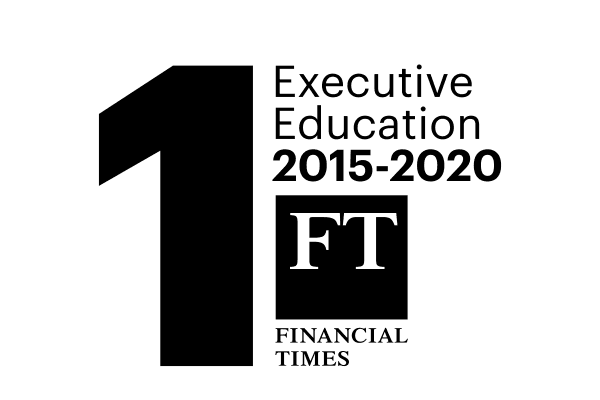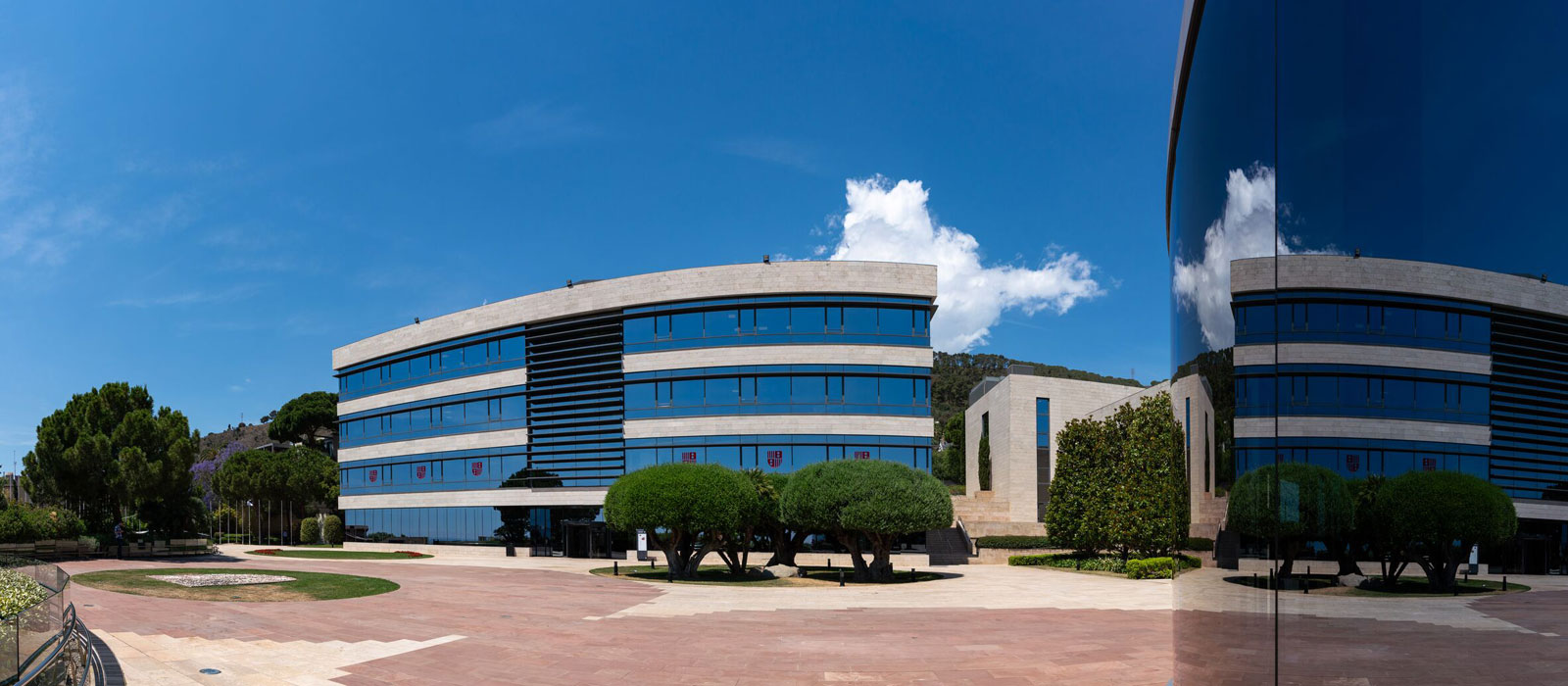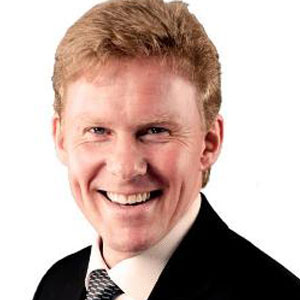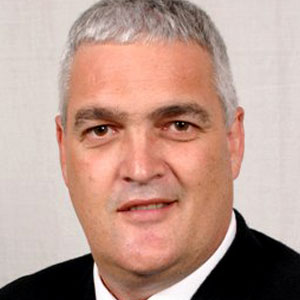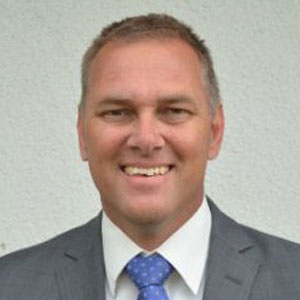Our focused programs provide a deep dive into the specific competencies or sectors that relate to you.
You will analyze critical leadership challenges and management competencies via practical, multidisciplinary learning methodologies that will empower you to lead and drive meaningful change.
Select your new professional challenge, the business area in which you want to progress and the preferred format or language in which you want to carry out your learning experience, to discover the programs that best suit your needs.
-
Liderar equipos con propósito
MADRID | May 7, 2024 | 3 days
Leadership and people managementEspañolDirigir un equipo exige una práctica guiada; los miembros suelen ser directores funcionales o divisionales con visiones parciales y, en ocasiones, intereses enfrentados. El líder debe motivarlos y cohesionarlos para alcanzar la excelencia.
More infoLiderar equipos con propósito
MADRID | May 7, 2024 | 3 days
Leadership and people managementEspañolDirigir un equipo exige una práctica guiada; los miembros suelen ser directores funcionales o divisionales con visiones parciales y, en ocasiones, intereses enfrentados. El líder debe motivarlos y cohesionarlos para alcanzar la excelencia.
More info -
Dirección estratégica de RR. HH.: personas y resultados en un entorno digital
BARCELONA | May 22, 2024 | 3 days
Strategic managementEspañolLas últimas técnicas en Dirección de Personas, un Departamento que se ha convertido en una pieza clave en las organizaciones, inmersas en entornos cada vez más complejos y globalizados.
More infoDirección estratégica de RR. HH.: personas y resultados en un entorno digital
BARCELONA | May 22, 2024 | 3 days
Strategic managementEspañolLas últimas técnicas en Dirección de Personas, un Departamento que se ha convertido en una pieza clave en las organizaciones, inmersas en entornos cada vez más complejos y globalizados.
More info -
Contabilidad y finanzas para directivos no financieros
LIVE ONLINE | May 23, 2024 | 6 weeks
FinanceEspañolUna inmersión en los conceptos financieros clave que debe dominar cualquier directivo para comprender el impacto de las decisiones comerciales, productivas y organizacionales de su empresa.
More infoContabilidad y finanzas para directivos no financieros
LIVE ONLINE | May 23, 2024 | 6 weeks
FinanceEspañolUna inmersión en los conceptos financieros clave que debe dominar cualquier directivo para comprender el impacto de las decisiones comerciales, productivas y organizacionales de su empresa.
More info -
Desarrollo sostenible & ESG
LIVE ONLINE + MADRID | May 27, 2024 | Online + 3,5 days
Strategic managementEspañolLa sostenibilidad es ya el tema clave de la agenda de las empresas. Los consumidores, los gobiernos y la sociedad en general exigen mayor responsabilidad las organizaciones en todas sus áreas. La comunidad financiera, exige ahora compromisos en los tres componentes de ESG (Medio ambiente, solidaridad y Gobierno Corporativo). Sin embargo, abordar los desafíos ambientales, sociales y corporativos genera tensiones en las organizaciones.
More infoDesarrollo sostenible & ESG
LIVE ONLINE + MADRID | May 27, 2024 | Online + 3,5 days
Strategic managementEspañolLa sostenibilidad es ya el tema clave de la agenda de las empresas. Los consumidores, los gobiernos y la sociedad en general exigen mayor responsabilidad las organizaciones en todas sus áreas. La comunidad financiera, exige ahora compromisos en los tres componentes de ESG (Medio ambiente, solidaridad y Gobierno Corporativo). Sin embargo, abordar los desafíos ambientales, sociales y corporativos genera tensiones en las organizaciones.
More info -
Value Creation Through Effective Boards
BARCELONA | May 27, 2024 | 4 days
Strategic managementEnglishIn this program, you will discover how to strengthen your own contribution and improve overall board effectiveness to truly drive business values, competitive advantage and board engagement.
More infoValue Creation Through Effective Boards
BARCELONA | May 27, 2024 | 4 days
Strategic managementEnglishIn this program, you will discover how to strengthen your own contribution and improve overall board effectiveness to truly drive business values, competitive advantage and board engagement.
More info -
Artificial intelligence for executives
BARCELONA | June 3, 2024 | 3.5 days
Strategic managementEnglishIn an environment shaped by rapid technology and process change, remaining competitive requires informed, innovative and future-focused leaders. So how do you streamline today while preparing your business for transition to Industry 4.0 tomorrow?
More infoArtificial intelligence for executives
BARCELONA | June 3, 2024 | 3.5 days
Strategic managementEnglishIn an environment shaped by rapid technology and process change, remaining competitive requires informed, innovative and future-focused leaders. So how do you streamline today while preparing your business for transition to Industry 4.0 tomorrow?
More info -
Developing Leadership Competencies
LIVE ONLINE & MADRID | June 5, 2024 | Online + 3,5 days
Leadership and people managementEnglishDiscover how to improve your leadership skills – identifying your strenthgs and weaknesses – and empower the individuals and teams in your organization to reach their full potential.
More infoDeveloping Leadership Competencies
LIVE ONLINE & MADRID | June 5, 2024 | Online + 3,5 days
Leadership and people managementEnglishDiscover how to improve your leadership skills – identifying your strenthgs and weaknesses – and empower the individuals and teams in your organization to reach their full potential.
More info -
Communication Skills that Empower Your Leadership
BARCELONA | June 11, 2024 | 3 days
Leadership and people managementEnglishDiscover how to speak powerfully and communicate effectively in a variety of contexts, capture the attention of your audience and make your body language work to your advantage.
More infoCommunication Skills that Empower Your Leadership
BARCELONA | June 11, 2024 | 3 days
Leadership and people managementEnglishDiscover how to speak powerfully and communicate effectively in a variety of contexts, capture the attention of your audience and make your body language work to your advantage.
More info -
Advanced Negotiation Strategies
BARCELONA | June 17, 2024 | 2 days
Strategic managementEnglishIn the fast-paced world of leadership, negotiation is more than just a skill: it’s a necessity. Going beyond the basics, this program delves deep into strategic negotiation tactics essential for navigating ethical dilemmas, deal-making and multicultural contexts.
More infoAdvanced Negotiation Strategies
BARCELONA | June 17, 2024 | 2 days
Strategic managementEnglishIn the fast-paced world of leadership, negotiation is more than just a skill: it’s a necessity. Going beyond the basics, this program delves deep into strategic negotiation tactics essential for navigating ethical dilemmas, deal-making and multicultural contexts.
More info -
Dignidad, diversidad y pertenencia
MADRID | June 17, 2024 | 3 days
Leadership and people managementEspañolEste programa tiene como objetivo explorar, a través de la lente de la dignidad humana, los principales desafíos de liderazgo y gestión relacionados con la diversidad, así como temas asociados como pertenencia, equidad e inclusión.
More infoDignidad, diversidad y pertenencia
MADRID | June 17, 2024 | 3 days
Leadership and people managementEspañolEste programa tiene como objetivo explorar, a través de la lente de la dignidad humana, los principales desafíos de liderazgo y gestión relacionados con la diversidad, así como temas asociados como pertenencia, equidad e inclusión.
More info -
Executing Digital Change: Data, Agility and Continuous Innovation
LIVE ONLINE & MADRID | June 19, 2024 | Online + 4 days
Strategic managementEnglishBuild new business, maximize profit and attract new customers no matter what new disruptive technologies come along.
More info -
Liderando proyectos estratégicos
LIVE ONLINE | October 14, 2024 | 5 weeks
Strategic managementEspañolLa selección, definición y gestión eficaz de proyectos, dentro del plazo y presupuesto planeados, controlando riesgos e incertidumbres, es una condición indispensable para mantener la competitividad de las empresas.
More infoLiderando proyectos estratégicos
LIVE ONLINE | October 14, 2024 | 5 weeks
Strategic managementEspañolLa selección, definición y gestión eficaz de proyectos, dentro del plazo y presupuesto planeados, controlando riesgos e incertidumbres, es una condición indispensable para mantener la competitividad de las empresas.
More info -
Dirección estratégica de ventas
MADRID | October 15, 2024 | 3 days
Marketing and sales managementEspañolDescubre las claves para crear una red de ventas adecuada, definir tu plan comercial idóneo y motivar a tu equipo al máximo.
More info -
Fundraising: claves para el éxito
MADRID | October 21, 2024 | 2.5 days
Leadership and people managementEspañolEste programa ofrece los conocimientos para llevar a cabo actividades de fundraising con éxito, incluidos el lanzamiento y gestión de campañas y las técnicas necesarias para desarrollar la relación con potenciales donantes.
More infoFundraising: claves para el éxito
MADRID | October 21, 2024 | 2.5 days
Leadership and people managementEspañolEste programa ofrece los conocimientos para llevar a cabo actividades de fundraising con éxito, incluidos el lanzamiento y gestión de campañas y las técnicas necesarias para desarrollar la relación con potenciales donantes.
More info -
Gestión de endowments y fondos institucionales
MADRID | October 23, 2024 | 2.5 days
Leadership and people managementEspañolLos endowment funds o fondos de dotación son las reservas financieras de instituciones que generalmente se reciben con la condición de que sean invertidos para generar rentabilidades anuales. Descubre los conceptos y herramientas necesarias para gestionar exitosamente tus endowments.
More infoGestión de endowments y fondos institucionales
MADRID | October 23, 2024 | 2.5 days
Leadership and people managementEspañolLos endowment funds o fondos de dotación son las reservas financieras de instituciones que generalmente se reciben con la condición de que sean invertidos para generar rentabilidades anuales. Descubre los conceptos y herramientas necesarias para gestionar exitosamente tus endowments.
More info -
Become a Positive Leader to Accelerate Positive Change
BARCELONA | November 4, 2024 | 4.5 days
Leadership and people managementEnglishIncreasing employee engagement, driving innovation and change, and stimulating extraordinary performance involves taking a new approach to leadership. You will learn proven techniques and acquire tools to stimulate performance in others by focusing on their strengths.
More infoBecome a Positive Leader to Accelerate Positive Change
BARCELONA | November 4, 2024 | 4.5 days
Leadership and people managementEnglishIncreasing employee engagement, driving innovation and change, and stimulating extraordinary performance involves taking a new approach to leadership. You will learn proven techniques and acquire tools to stimulate performance in others by focusing on their strengths.
More info -
Negociar con eficacia y creatividad
MADRID | November 5, 2024 | 3 days
Strategic managementEspañolLos directivos deben negociar constantemente. Este curso te ayudará a convertirte en un negociador creativo y eficaz, capaz de cerrar acuerdos en los que todas las partes se sientan satisfechas e implicadas.
More infoNegociar con eficacia y creatividad
MADRID | November 5, 2024 | 3 days
Strategic managementEspañolLos directivos deben negociar constantemente. Este curso te ayudará a convertirte en un negociador creativo y eficaz, capaz de cerrar acuerdos en los que todas las partes se sientan satisfechas e implicadas.
More info -
Developing Leadership Competencies
LIVE ONLINE & BARCELONA | November 12, 2024 | Online + 3.5 days
Leadership and people managementEnglishDiscover how to improve your leadership skills – identifying your strengths and weaknesses – and empower the individuals and teams in your organization to reach their full potential.
More infoDeveloping Leadership Competencies
LIVE ONLINE & BARCELONA | November 12, 2024 | Online + 3.5 days
Leadership and people managementEnglishDiscover how to improve your leadership skills – identifying your strengths and weaknesses – and empower the individuals and teams in your organization to reach their full potential.
More info -
Getting Things Done: Strategic Management
MADRID | November 18, 2024 | 5 days
Strategic managementEnglishUnlock the mysteries behind strategy implementation and discover the essential factors crucial in bringing about the successful execution of business objectives.
More info -
High-Performance Board Member Program
DÜSSELDORF, MUNICH & BARCELONA | November 25, 2024 | 3 non-consecutive weeks
Strategic managementEnglishCorporate boards play a crucial role in today's transformational business landscape, providing guidance and oversight on a range of issues, including business strategy, risk management, and regulatory compliance. This unique program is designed for executives currently serving on corporate boards, those aspiring to serve on corporate boards, and executives seeking to engage more effectively with their boards.
More infoHigh-Performance Board Member Program
DÜSSELDORF, MUNICH & BARCELONA | November 25, 2024 | 3 non-consecutive weeks
Strategic managementEnglishCorporate boards play a crucial role in today's transformational business landscape, providing guidance and oversight on a range of issues, including business strategy, risk management, and regulatory compliance. This unique program is designed for executives currently serving on corporate boards, those aspiring to serve on corporate boards, and executives seeking to engage more effectively with their boards.
More info -
Artificial Intelligence for Executives
MUNICH | November 25, 2024 | 3.5 days
Strategic managementEnglishIn an environment shaped by rapid technology and process change, remaining competitive requires informed, innovative and future-focused leaders. So how do you streamline today while preparing your business for transition to Industry 4.0 tomorrow?
More infoArtificial Intelligence for Executives
MUNICH | November 25, 2024 | 3.5 days
Strategic managementEnglishIn an environment shaped by rapid technology and process change, remaining competitive requires informed, innovative and future-focused leaders. So how do you streamline today while preparing your business for transition to Industry 4.0 tomorrow?
More info -
Comunicar con eficacia y persuasión
BARCELONA | November 26, 2024 | 3 days
Leadership and people managementEspañolDescubre las herramientas y las técnicas básicas de comunicación para convencer y crear vínculos de compromiso con diferentes niveles de la organización y con distintos interlocutores.
More infoComunicar con eficacia y persuasión
BARCELONA | November 26, 2024 | 3 days
Leadership and people managementEspañolDescubre las herramientas y las técnicas básicas de comunicación para convencer y crear vínculos de compromiso con diferentes niveles de la organización y con distintos interlocutores.
More info -
Relanzamiento del talento sénior: nuevos horizontes profesionales
MADRID | November 28, 2024 | 10 days
Leadership and people managementEspañolLa volatilidad del mercado, las nuevas tendencias, la evolución natural de las empresas, las etapas de conciliación familiar o las prejubilaciones provocan que buenos profesionales sénior vean interrumpida su carrera profesional en un momento óptimo de experiencia y conocimientos. ¿Cómo rearmar a los líderes más experimentados, reorientar su madurez profesional, reforzar sus conocimientos y dotarles de herramientas necesarias para emprender con éxito una nueva etapa en su vida profesional?
More infoRelanzamiento del talento sénior: nuevos horizontes profesionales
MADRID | November 28, 2024 | 10 days
Leadership and people managementEspañolLa volatilidad del mercado, las nuevas tendencias, la evolución natural de las empresas, las etapas de conciliación familiar o las prejubilaciones provocan que buenos profesionales sénior vean interrumpida su carrera profesional en un momento óptimo de experiencia y conocimientos. ¿Cómo rearmar a los líderes más experimentados, reorientar su madurez profesional, reforzar sus conocimientos y dotarles de herramientas necesarias para emprender con éxito una nueva etapa en su vida profesional?
More info -
Negociar con eficacia y creatividad
BARCELONA | February 11, 2025 | 3 days
Strategic managementEspañolLos directivos deben negociar constantemente. Este curso te ayudará a convertirte en un negociador creativo y eficaz, capaz de cerrar acuerdos en los que todas las partes se sientan satisfechas e implicadas.
More infoNegociar con eficacia y creatividad
BARCELONA | February 11, 2025 | 3 days
Strategic managementEspañolLos directivos deben negociar constantemente. Este curso te ayudará a convertirte en un negociador creativo y eficaz, capaz de cerrar acuerdos en los que todas las partes se sientan satisfechas e implicadas.
More info -
Consejos de administración responsables
MADRID | March 4, 2025 | 3 days
Strategic managementEspañolProfundiza en los temas que deben constituir la agenda de un Consejo de Administración y descubre las últimas ideas sobre los principales ejes que determinan la función de un consejero.
More info -
Winning Negotiation Strategies
MUNICH | March 10, 2025 | 2 days
Strategic managementEnglishWinning Negotiation Strategies is a program that transforms a good negotiator into a great negotiator. A good negotiator is one who negotiates with reasonable success in normal situation.
More info -
Strategic Sales Management
MADRID | March 11, 2025 | 3 days
Strategic managementEnglishReflect on the key elements in professionalizing your sales force. Discover best practices, but also mistakes sales leaders often make. Use these inputs to examine and find specific improvement areas for your own team.
More infoStrategic Sales Management
MADRID | March 11, 2025 | 3 days
Strategic managementEnglishReflect on the key elements in professionalizing your sales force. Discover best practices, but also mistakes sales leaders often make. Use these inputs to examine and find specific improvement areas for your own team.
More info -
Getting Things Done: Strategic Management
BARCELONA | March 24, 2025 | 5 days
Strategic managementEnglishUnlock the mysteries behind strategy implementation and discover the essential factors crucial in bringing about the successful execution of business objectives.
More info -
Transformación digital. Programa de alta dirección
BARCELONA & MADRID | April 1, 2025 | 9 days
Strategic managementEnglishLa transformación digital es un tema candente y en la agenda de todo comité de dirección. Esta nueva realidad afecta al modo de relacionarse con los clientes, la forma de trabajar de los equipos, la comunicación y, en definitiva, a la propuesta de valor de las empresas.
More infoTransformación digital. Programa de alta dirección
BARCELONA & MADRID | April 1, 2025 | 9 days
Strategic managementEnglishLa transformación digital es un tema candente y en la agenda de todo comité de dirección. Esta nueva realidad afecta al modo de relacionarse con los clientes, la forma de trabajar de los equipos, la comunicación y, en definitiva, a la propuesta de valor de las empresas.
More info -
Sustainability & ESG: Design, Plan and Implement
MUNICH | June 16, 2025 | 3.5 days
Strategic managementEnglishSustainability is becoming a core topic in the strategic agendas of many firms. Increasingly, consumers, governments, civil society, and other stakeholders are demanding greater accountability from organizations.
More infoSustainability & ESG: Design, Plan and Implement
MUNICH | June 16, 2025 | 3.5 days
Strategic managementEnglishSustainability is becoming a core topic in the strategic agendas of many firms. Increasingly, consumers, governments, civil society, and other stakeholders are demanding greater accountability from organizations.
More info

Certificate in AI & Digital Transformation
IESE stands as the leading global learning institution for executive leaders like yourself to stay at the forefront of professional competence. Our first Certificate in AI & Digital Transformation will establish you as a qualified specialist in the ever-evolving digital field.
Create your own tailor-made track
You choose what you want to learn. Aimed to increase your skillset in key areas ensuring that all content is relevant to your career path.

Executive Education Certificate
IESE offers you the opportunity to earn an Executive Education Certificate by designing a customized development plan of Focused Programs. Working in collaboration with an IESE advisor, you will devise a plan that reflects your unique needs and goals.
Our participants say

The IESE Experience
At IESE, you’ll be surrounded by talented peers, supported by a world-class faculty, and challenged by real-life business cases. We’ll put you to the test so that you can reach your full potential.
Discover the benefits of the IESE experience.
Need more information?
Come visit us and we will answer all of your questions. Coffee is on us!
Focused Programs Barcelona | focused@iese.edu
(+34) 93 253 4395
Focused Programs Madrid | focused@iese.edu
(+34) 91 211 3132 / 3160
Focused Programs Munich | execed.muc@iese.edu
(+49) 89 2420979-24
Focused Programs New York | execedusa@iese.edu
(+1) (646) 346 8830
Executive Education Rankings.


